Mercedes-Benz, a symbol of luxury and engineering excellence, has long been a leader in the high-end automotive market. However, like all luxury brands, its sales and profitability are closely tied to global economic conditions.
During periods of economic growth, demand for premium vehicles rises as consumers have greater purchasing power. Conversely, during downturns, inflation, rising interest rates, and declining consumer confidence often lead to a dip in luxury car sales.
From the 2008 financial crisis to the recent economic challenges in China, Mercedes-Benz has faced multiple market disruptions. This article explores how global economic downturns affect Mercedes-Benz’s sales, the key economic factors at play, and the company’s strategies to navigate these challenges.
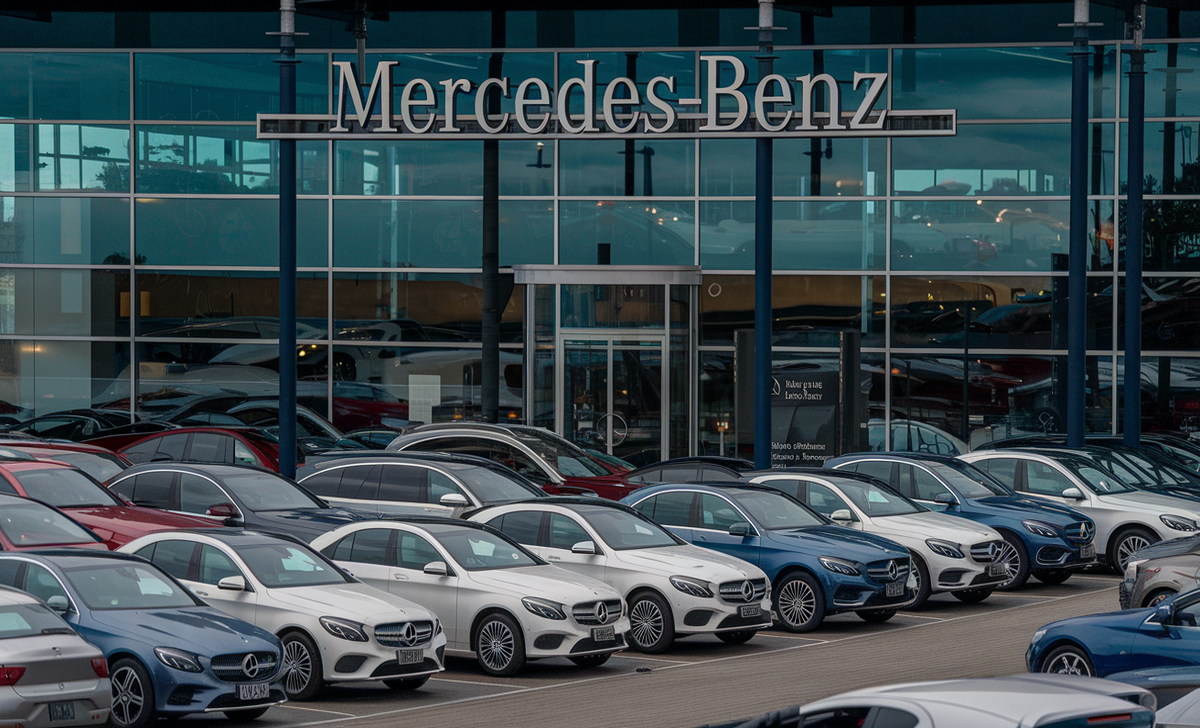
Key Takeaways:
- Economic downturns lower luxury car demand due to reduced consumer confidence and spending.
- Mercedes-Benz adapts by focusing on high-margin models and cost-cutting measures.
- Historical challenges include the 2008 financial crisis and COVID-19 pandemic.
- The company invests in electric vehicles and innovation for future growth.
Understanding Economic Downturns
An economic downturn is a phase of declining economic activity that affects businesses, consumers, and overall market stability. Financial crises, inflation, high interest rates, or geopolitical instability often trigger it. For luxury brands like Mercedes-Benz, economic downturns can lead to lower consumer confidence and reduced spending on non-essential high-end goods, directly impacting sales and profitability.
- Decline in consumer spending
- Lower corporate earnings
- Rising unemployment rates
- Slower GDP growth
This economic instability influences the purchasing behavior of affluent consumers, making them more cautious about investing in luxury vehicles.
How Do Economic Downturns Affect Luxury Car Sales?
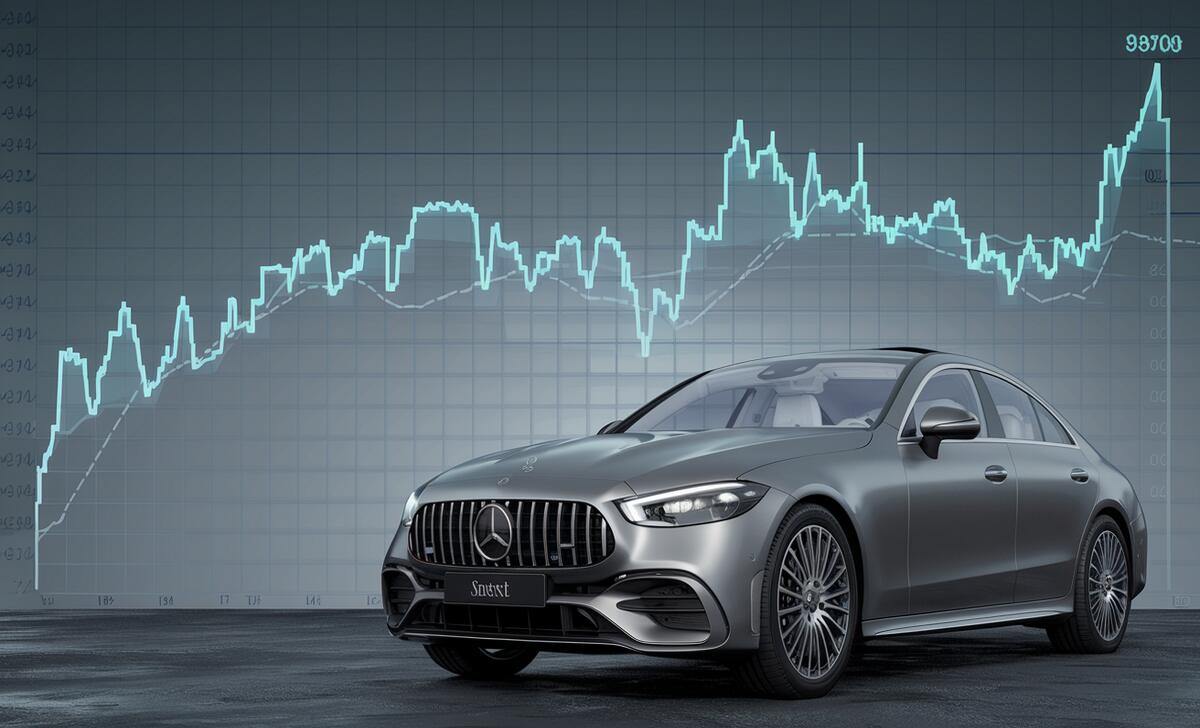
Economic downturns significantly impact luxury car sales as consumer confidence declines and spending habits shift. Affluent consumers may delay purchasing high-end vehicles due to uncertainty about future earnings and investment returns.
Additionally, automakers face increased challenges, such as fluctuating raw material costs, supply chain disruptions, and competitive pressures from more budget-friendly alternatives. As a result, the luxury car market often experiences volatility during periods of economic instability.
Key Impacts:
- Lower Consumer Confidence: Buyers postpone expensive purchases, affecting sales volumes.
- Market Uncertainty: Automakers struggle with pricing stability and shrinking profit margins.
- Shift in Preferences: Consumers opt for fuel-efficient or lower-cost alternatives.
- Supply Chain Disruptions: Manufacturing slowdowns limit vehicle availability.
Historical Impact On Mercedes-Benz Sales
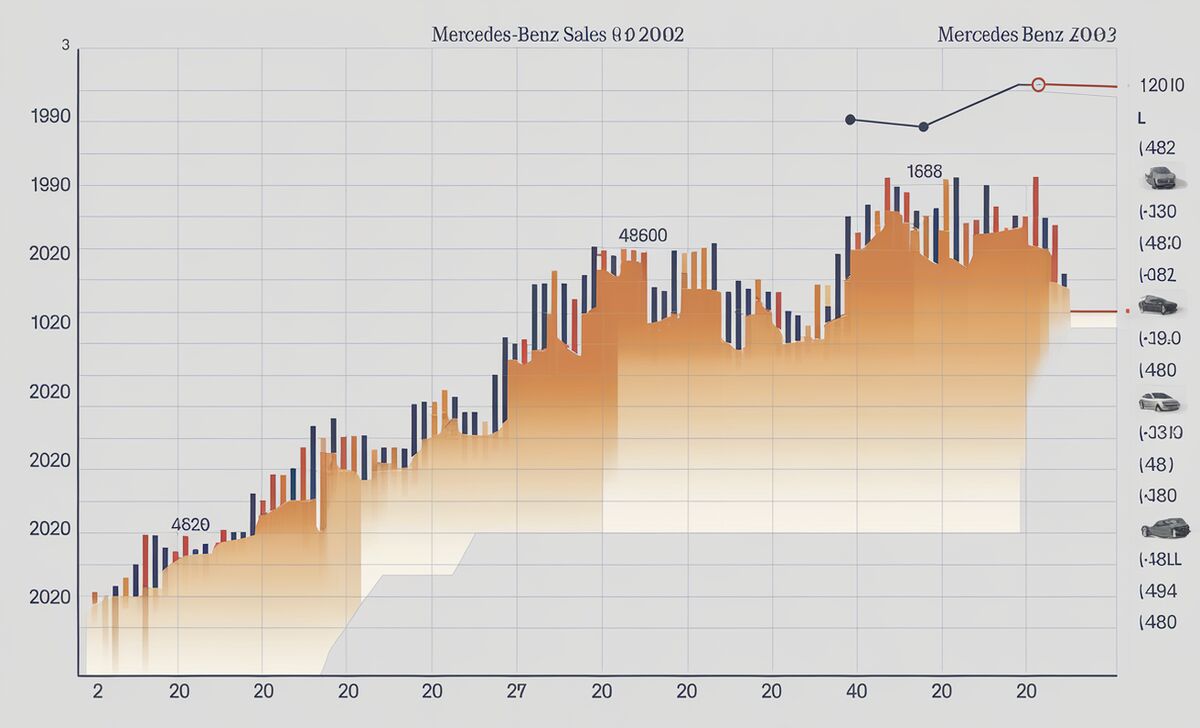
Mercedes-Benz has faced several economic downturns that significantly influenced its sales strategies and market performance. During recessions and financial crises, luxury car demand tends to drop as consumers prioritize essential spending over high-end vehicle purchases.
Mercedes-Benz has had to adapt through pricing adjustments, model diversification, and innovative marketing strategies to maintain its position as a leading luxury car brand. Below is a look at how past economic downturns impacted the company.
Early 1990s Recession
The early 1990s recession led to a decline in consumer spending, impacting the demand for high-end luxury vehicles. Mercedes-Benz introduced the W140 S-Class in 1991, a technologically advanced flagship model, but its high price and economic conditions slowed sales.
Additionally, rising competition from Japanese luxury brands like Lexus and Acura challenged Mercedes-Benz’s dominance, forcing the company to rethink its pricing and marketing strategies.
- Launched the W140 S-Class in 1991 but struggled with slow sales due to premium pricing.
- Faced strong competition from Lexus and Acura, which offered luxury at a lower cost.
- Adjusted pricing and marketing strategies to regain market share and attract buyers.
2007–2008 Financial Crisis
The 2007–2008 financial crisis led to a global economic slowdown, causing job losses, reduced consumer confidence, and a decline in discretionary spending. As a result, demand for luxury vehicles, including Mercedes-Benz, dropped significantly as buyers prioritized affordability over high-end purchases. To adapt, Mercedes-Benz introduced fuel-efficient models and adjusted its offerings to appeal to cost-conscious consumers.
- Luxury car demand declined as consumers shifted to more affordable options.
- Mercedes-Benz experienced a sharp drop in global vehicle sales.
- Introduced fuel-efficient models like the C-Class diesel to attract budget-conscious buyers.
COVID-19 Pandemic (2020)
The COVID-19 pandemic caused widespread economic disruption, leading to global lockdowns, supply chain issues, and declining consumer confidence. With factories shutting down and dealerships closing, luxury car sales plummeted as consumers delayed big-ticket purchases.
The Indian luxury car market was hit particularly hard, experiencing a 40% decline. In response, Mercedes-Benz accelerated its shift to digital retailing, enabling online car sales and virtual showroom experiences to maintain customer engagement.
- Global lockdowns led to production halts and dealership closures.
- Luxury car sales, including Mercedes-Benz, saw a significant decline.
- The Indian luxury car market dropped by 40%.
- Mercedes-Benz adapted by expanding digital retailing and online sales.
Recent Economic Challenges And Mercedes-Benz’s Response
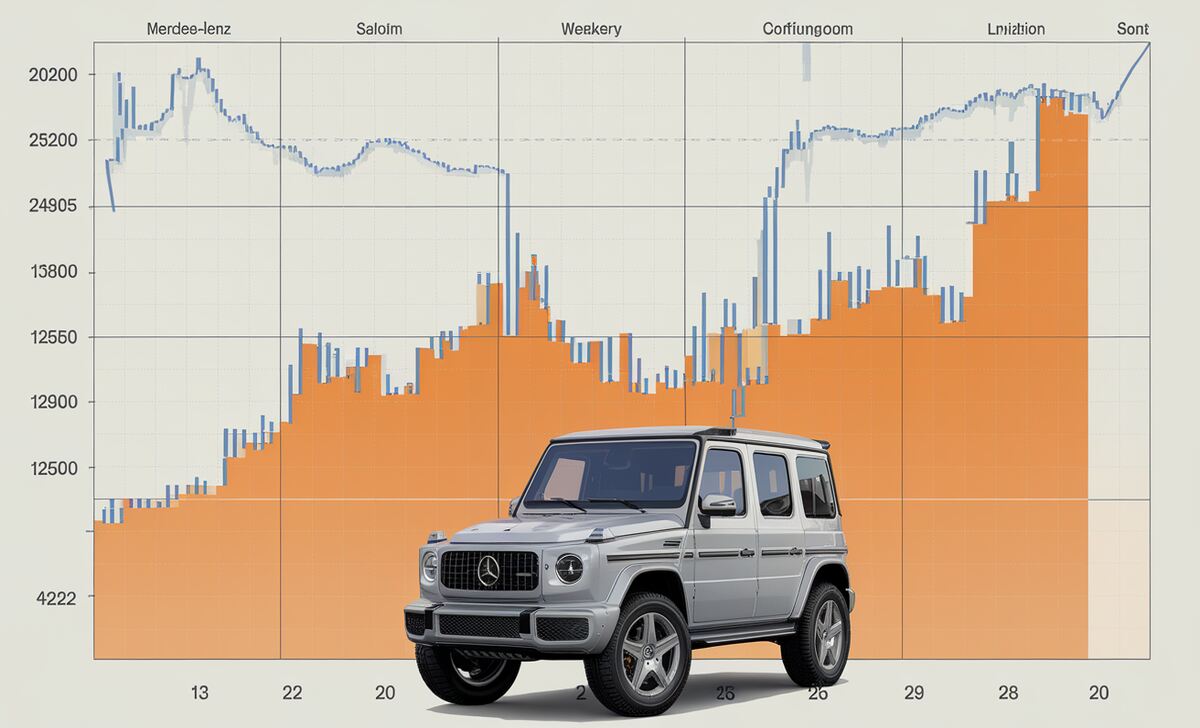
The global economic slowdown in 2024 significantly impacted the luxury automotive industry. Mercedes-Benz is facing declining sales in key markets. Rising inflation, higher interest rates, and weakening consumer confidence reduced demand for luxury vehicles.
In response, Mercedes-Benz shifted its focus to high-margin luxury models and implemented cost-cutting strategies to maintain profitability. Below is an overview of the company’s challenges and approaches to overcoming them.
2024 Economic Slowdown
The global economic slowdown in 2024 notably impacted the luxury car market, affecting Mercedes-Benz’s sales performance. Factors such as rising inflation, increased interest rates, and softening consumer demand decreased overall vehicle sales.
While Mercedes-Benz faced a decline in global sales, the company strategically shifted its focus toward high-margin luxury models to maintain profitability. This approach aimed to safeguard the brand’s position in a more challenging economic environment, especially in critical markets like China.
- Global sales declined by 3%, totaling 1.98 million vehicles.
- The Chinese market, a major region for Mercedes-Benz, saw a 7% drop in sales.
- Focusing on high-margin luxury models rather than volume sales to protect profits.
Cost-Cutting Measures
In response to the economic challenges of 2024, Mercedes-Benz implemented a series of cost-cutting measures to improve profitability and ensure long-term sustainability. The company strategically reduced its workforce in certain regions and streamlined its operations. This was paired with an emphasis on high-margin premium and luxury vehicle segments, helping the brand adapt to shifting market conditions while maintaining its competitive edge.
- Announced plans to reduce its workforce by 15% in China to streamline operations.
- Implemented cost-reduction strategies aimed at boosting profitability across its global operations.
- Adjusted business strategy to prioritize premium and luxury vehicle segments over volume-based sales.
Key Sales Figures (2024)
| Category | Sales Change |
|---|---|
| Total Car Sales | -3% |
| China Market | -7% |
| European Market | -3% |
| Electric Vehicle Sales | -23% |
| Luxury Segment (Quarterly) | +34% |
Factors Influencing Mercedes-Benz’s Sales During Downturns

Economic downturns present significant challenges for luxury car manufacturers like Mercedes-Benz, affecting key areas such as consumer confidence, market competition, and technological shifts. During times of uncertainty, buyers become more cautious with their spending, opting to delay purchases or turn to more affordable alternatives.
Additionally, fierce competition from rival luxury brands, along with the rise of budget-friendly electric vehicles (EVs), pressures Mercedes-Benz to adjust its strategy. The ongoing transition to EVs also presents both opportunities and hurdles, as demand for electric vehicles fluctuates amid the broader economic challenges.
Consumer Confidence
Economic downturns often lead to a decline in consumer confidence, reducing demand for luxury vehicles. Buyers tend to delay purchases or choose used cars over new models due to financial caution.
Market Competition
Mercedes-Benz faces heightened competition from other luxury car brands such as Aston Martin, BMW, and Tesla. Additionally, Chinese brands are increasingly dominating the electric vehicle segment by offering lower-priced alternatives, making it more challenging for traditional luxury automakers.
Technological Shifts
The transition to electric vehicles (EVs) has brought both opportunities and challenges. In 2024, Battery Electric Vehicle (BEV) sales fell by 23%, highlighting the complexities of shifting consumer preferences. To counter this, Mercedes-Benz has launched models like the Mercedes CLA EV to boost its presence in the growing EV market.
Strategies For Resilience In Economic Downturns
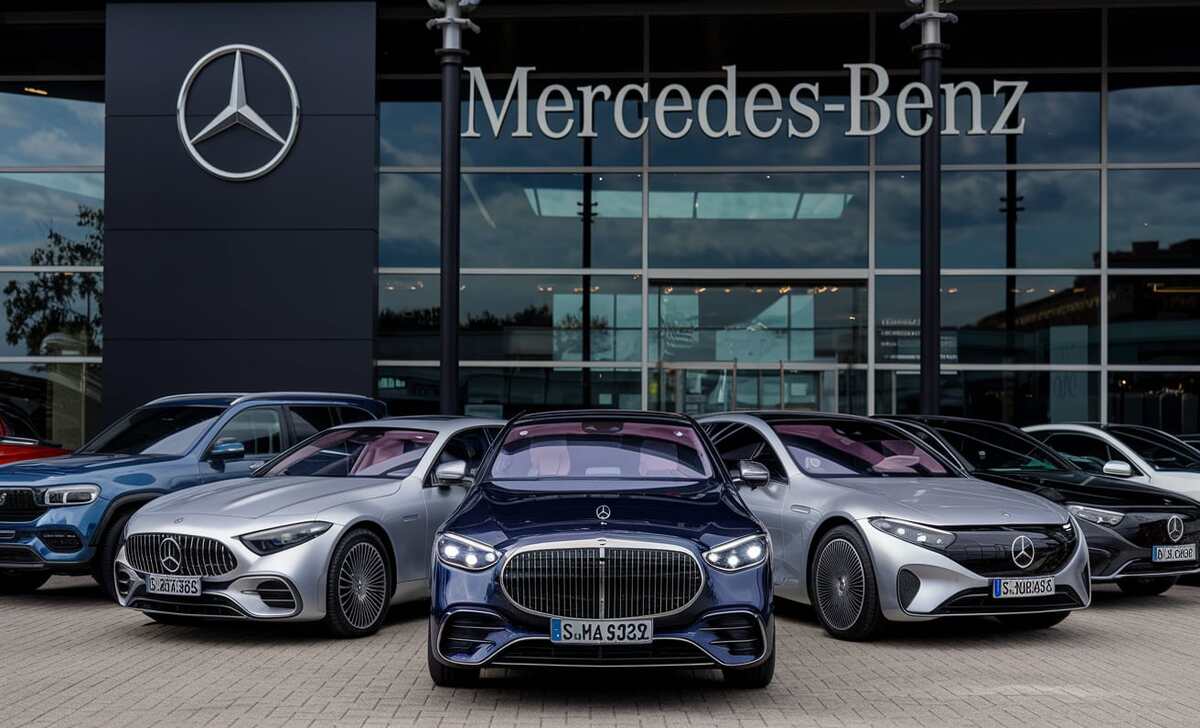
During economic downturns, luxury car manufacturers like Mercedes-Benz must adopt strategic measures to sustain growth and profitability. To counter declining sales and shifting consumer demand, the company focuses on expanding its market presence, investing in product innovation, and implementing cost-cutting initiatives.
By strengthening its financial services, introducing a mix of combustion and electric vehicles, and optimizing operational efficiency, Mercedes-Benz aims to navigate challenges while maintaining its position as a leader in the luxury automotive industry.
1. Diversification
In response to economic downturns, Mercedes-Benz has focused on expanding into emerging markets to reduce its dependence on traditional markets, where demand for luxury vehicles may fluctuate.
By strengthening its mobility and financial services divisions, the company aims to offer more flexible options to customers, ensuring a steady revenue stream even when car sales face challenges. This diversification strategy helps buffer the brand against downturns in key markets.
- Expanding into emerging markets to stabilize revenue.
- Strengthening Mercedes-Benz Mobility and Mercedes-Benz Financial Services for more flexible customer options.
2. Product Innovation
To stay competitive during economic downturns, Mercedes-Benz is committed to driving product innovation. The company plans to introduce a significant number of new models in the coming years, focusing on both traditional combustion engine vehicles and electric cars.
This strategy ensures that Mercedes-Benz continues to meet diverse consumer preferences, whether they prioritize performance or sustainability. Additionally, the brand is investing heavily in hybrid and high-performance luxury SUVs to appeal to a broader market segment and maintain its premium positioning.
- Introducing 19 new combustion engine models and 17 battery-electric cars by 2027.
- Investing in hybrid and high-performance luxury SUVs to attract a wider range of buyers.
3. Cost Management
In response to economic downturns, Mercedes-Benz has implemented cost management strategies to maintain profitability. By reducing unnecessary operational expenses and streamlining production processes, the company is better positioned to weather economic uncertainty.
Mercedes-Benz is also prioritizing profitability by focusing on high-margin luxury models, rather than pursuing high-volume sales, ensuring financial stability even in challenging market conditions.
- Cutting unnecessary operational expenses to streamline production.
- Prioritizing profitability over high-volume sales by focusing on high-margin luxury models.
Future Outlook For Mercedes-Benz
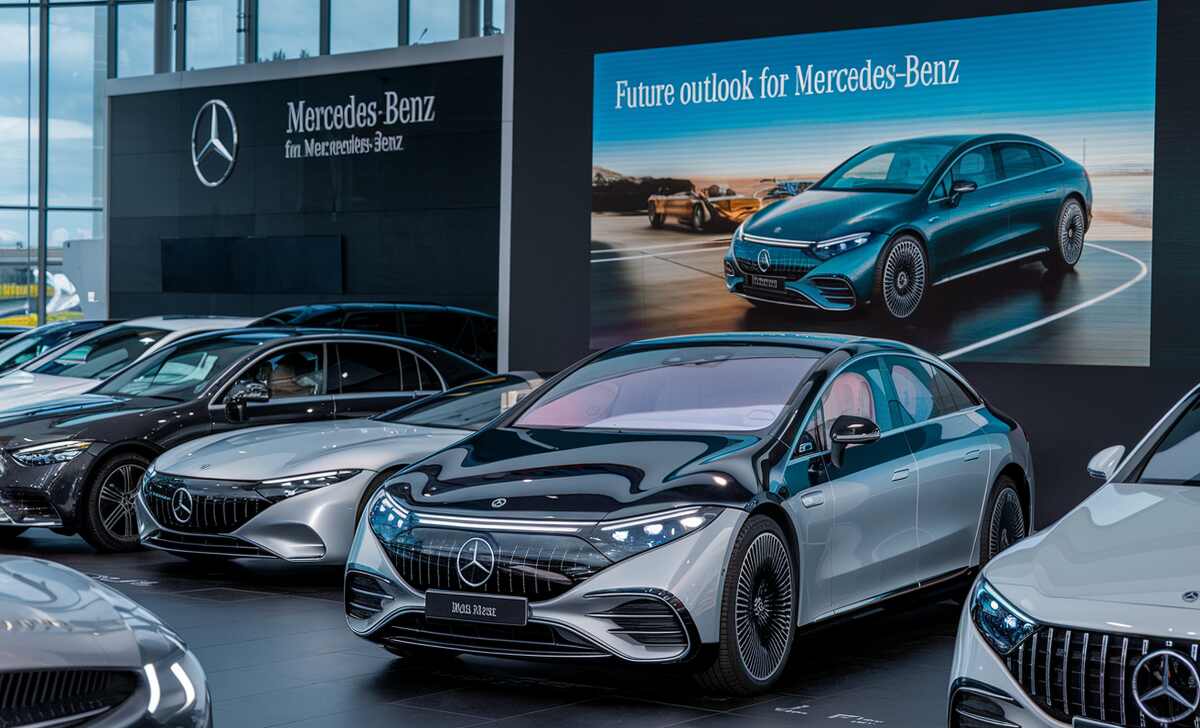
As global economies stabilize, the demand for luxury cars is expected to recover, benefiting premium automakers like Mercedes-Benz. The company is positioning itself for future growth by investing heavily in electric vehicle (EV) technology, autonomous driving innovations, and digital mobility solutions.
Strengthening its presence in key markets such as China, the U.S., and Europe remains a priority, along with expanding its high-end luxury vehicle lineup and Mercedes-Benz Vans segment to meet evolving consumer preferences.
Key Focus Areas:
- Expected recovery in global luxury car demand as economies improve.
- Increased investment in autonomous driving and EV technology.
- Strengthening market presence in China, the U.S., and Europe.
- Expansion of high-end luxury vehicles and Mercedes-Benz Vans.
Conclusion
Mercedes-Benz has demonstrated resilience in the face of multiple economic downturns, successfully adapting its strategies to navigate changing market conditions. Through diversification into emerging markets, a focus on product innovation, and effective cost management, the company continues to secure its position as a leader in the luxury automotive sector.
Despite ongoing challenges such as economic slowdowns and rising competition, Mercedes-Benz remains committed to technological advancements and maintaining its luxury brand identity. As it moves forward, the brand’s ability to evolve and meet consumer demands will be critical in overcoming future uncertainties.
FAQs
1.How Did The 2008 Financial Crisis Impact Mercedes-Benz?
The 2008 financial crisis led to a significant decline in luxury vehicle sales, with Mercedes-Benz experiencing a 5.4% drop in global sales compared to 2007. This downturn was primarily attributed to reduced consumer confidence and spending, especially in key markets like the U.S.
2.Why Did Mercedes-Benz’s Sales Decline In 2024?
In 2024, Mercedes-Benz faced a 3% global sales decline, selling 1.98 million vehicles. The Chinese market, a crucial region, saw a 7% drop in sales, influenced by weakening consumer confidence and economic challenges.
3.How Is Mercedes-Benz Adapting To Market Challenges?
To counteract declining sales and shifting consumer preferences, Mercedes-Benz is implementing cost-cutting initiatives, including workforce reductions and salary adjustments. The company is also focusing on launching new models, particularly in the luxury SUV segment, and emphasizing high-margin vehicles to maintain profitability.
4.Is Mercedes-Benz Investing In Electric Vehicles?
Yes, Mercedes-Benz is actively investing in electric vehicles. The company plans to introduce 17 battery-electric models by 2027, including the Mercedes CLA EV, to meet evolving consumer demands and regulatory requirements.
5.What Is Mercedes-Benz Doing To Counter Competition From Tesla?
To compete with Tesla, Mercedes-Benz is enhancing its electric vehicle offerings by improving battery range, luxury interiors, and autonomous driving features. The company is also investing in hybrid models to provide consumers with a mix of performance and efficiency.
6.How Has Consumer Preference Changed In Recent Years?
Consumers are increasingly gravitating towards sustainable and technologically advanced vehicles. This shift is evident in the growing demand for electric and hybrid models, as well as features like autonomous driving and advanced connectivity.
7.What Markets Are Most Affected By Economic Downturns?
Key markets such as China, Europe, and the U.S. are most affected by economic downturns. These regions often experience significant fluctuations in vehicle sales due to changes in consumer confidence, economic policies, and market dynamics.
8.How Is Mercedes-Benz Maintaining Profit Margins?